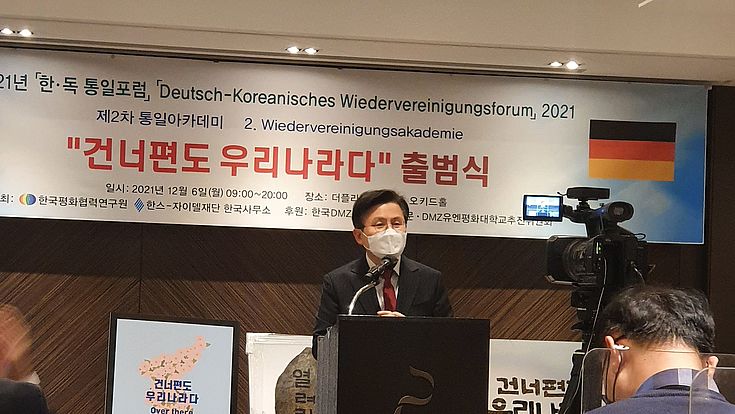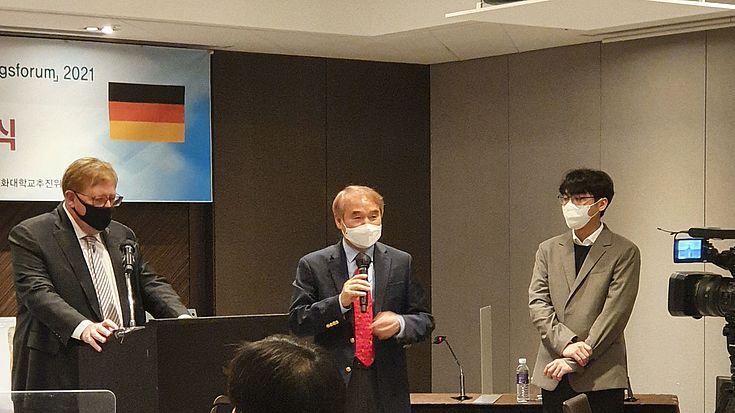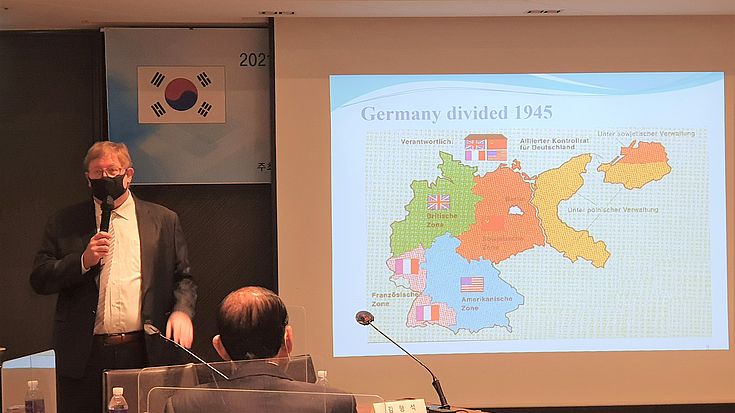Forum
“Over there is Korea, too.”

The forum, titled “Over there is Korea, too,” was held to promote unification of North and South Korea, to discuss the approaches to unification, and to study possible methods by looking at the case of unified Germany. Former Prime Minister of South Korea, Mr. Kyo-Ahn Hwang opened the forum by sharing his personal experience as a member separated family from North Korea. He expressed enthusiasm towards the work done by KIPCO and HSF Korea to promote the unification of the two Koreas. In particular, Mr. Hwang elaborated on possible strengths of a united Korea, such as the resolution of the population decline and the security dilemma on the Korean peninsula. However, he added that human rights issues in North Korea must primarily be resolved to proceed the unification process.

Prof. Dr. Ki Woong Son, president of KIPCO, introduced previous projects to promote Korean unification. He also mentioned the historic monument “Slut up” in pre-unified Germany and explained the significance of such a movement. In August 2021, a similar monument was built in South Korea to increase unification engagement by the public. The unveiling ceremony for the Unification Monument was held at the Unification Village in Paju and was organized by KIPCO and supported by HSF Korea. The first part of the forum was concluded by a panel discussion in which notable experts shared their opinions on the discussed topics.

Dr. Bernhard Seliger, Representative of HSF Korea, also gave a presentation during the event. Speaking about “31 Years of German Unification, Lessons for Korea”, he argued that the unification of Germany was driven primarily by the people and the private entities, rather than public entities. He pointed out the significance that the package exchange had between the East and West Germans and proclaimed that this consequently acted as a key in unification. The lack of this connectedness may act as a significant obstacle for Korean unification, as it necessitates the involvement and engagement of the people, which is strictly forbidden in the Korean context.
